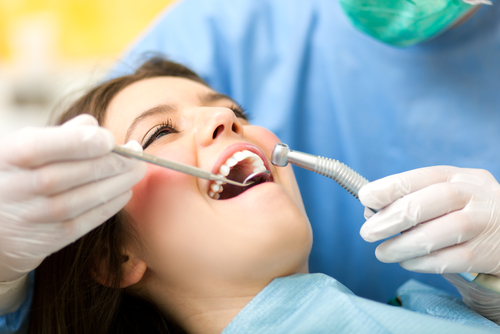Regular visits to the dentist may decrease the risk of pneumonia by reducing mouth bacteria, according to a study presented at IDWeek 2016 Oct. 26-30 in New Orleans. The scientific meeting was attended by infectious disease professionals.
According to the Centers for Disease Control and Prevention (CDC), about 1 million people in the U.S. are hospitalized with pneumonia every year, and about 50,000 people die from the disease. Most patients who are admitted to the hospital and who succumb to pneumonia are adults.
The new research bolsters previous studies showing that oral health plays a role in the development of pneumonia.
“There is a well-documented connection between oral health and pneumonia, and dental visits are important in maintaining good oral health,” Michelle Doll, MD, lead author of the study and assistant professor of internal medicine in the Division of Infectious Disease at Virginia Commonwealth University, said in a news release. “We can never rid the mouth of bacteria altogether, but good oral hygiene can limit the quantities of bacteria present.”
Doll and colleagues used data from the 2013 Medical Expediture Panel Survey, a large-scale U.S. study of healthcare utilization and satisfaction among families and individuals, their medical providers, and employers.
The team identified 441 people (of 26,246 people in the database) who had bacterial pneumonia. Compared to people who had dental check-ups twice a year, those who never visited a dentist had an 86 percent increased risk for developing pneumonia.
From the skin to the gastrointestinal system, including the mouth, the human body has 10 times more microbes (bacteria, fungi, and viruses) than cells. The most common cause of bacterial pneumonia is Streptococcus pneumonia, but it can also be caused by Chlamydophila pneumonia, Legionella pneumophila, or other disease-causing microorganisms.
The team concluded that routine dentist visits reduce the amount of bacteria in the mouth that can spread to the lungs and promote pneumonia.
“Our study provides further evidence that oral health is linked to overall health, and suggests that it’s important to incorporate dental care into routine preventive healthcare,” Doll said.

